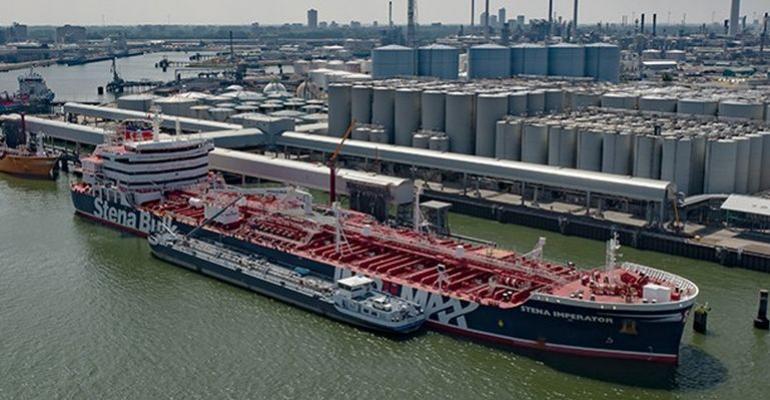Eddie Fish, Market Development Advisor Aviation & Marine Fuels at ExxonMobil, told Seatrade Maritime News in an interview that it was seeing increasing interest in biofuels as a transition fuel along with LNG, which is already established for a small portion of the global shipping fleet.
Fish said the benefits of drop-in biofuels are they do not require expensive modifications to vessels and that they deliver immediate greenhouse gas reductions (GHG).
As a drop-in fuel component added to Very Low Sulphur Fuel Oil (VLSFO) the higher the percentage of biofuels the higher the savings are in terms of GHG emissions. Currently biofuels are mainly blended at the 20 – 30% level which ExxonMobil sees a “sweetspot”, although the company has trailed up 49% biofuel (B49) with 51% VLFSO.
In the ARA (Amsterdam, Rotterdam, Antwerp) region ExxonMobil is moving from the trial stage to full commercial offerings of drop-in biofuels to customers. “We've been very active in the B30 space out of Antwerp and Rotterdam area, in France we've already offered a B25,” he explained. In the UK the company has been asked to help a couple of customers with a trial for a B20 fuel.
ExxonMobil is also working on bringing marine biofuels to market in Italy, most likely early next, year and has carried a few trials of B25 in Singapore, most recently with a bunkering for a Tata NYK Shipping vessel last month.
Singapore is studying the use of mass flow meters (MFMs), which it mandates for conventional bunker deliveries, ensuring they are calibrated for biofuels. “We're comfortable, or certainly aware of and ensuring, that the mass flow metres that we are looking to utilise and or continue to instal will work well with these with these biofuels.”
When it comes to using biofuels he stresses that it’s important to look at the full lifecycle of the product. For owners looking for biofuels to help meet the International Maritime Organization’s (IMO) Carbon Intensity Indicator they might be disappointed at present as from a purely CII standpoint Fish says they “don’t help hugely” as it looks only at what happens on the vessel and not the upstream component.
“But if we look at the European legislation, and we certainly look at the Exxon Mobil approach one needs to consider the full lifecycle assessment,” he said. There is work ongoing with the IMO try and factor in the full lifecycle assessment into CII.
Another key factor is inventory practices and ensuring trustworthy sources for bio-components and that they are ISCC (International Sustainability Carbon Certification) certified.
Copyright © 2024. All rights reserved. Seatrade, a trading name of Informa Markets (UK) Limited.
Add Seatrade Maritime News to your Google News feed.  |

